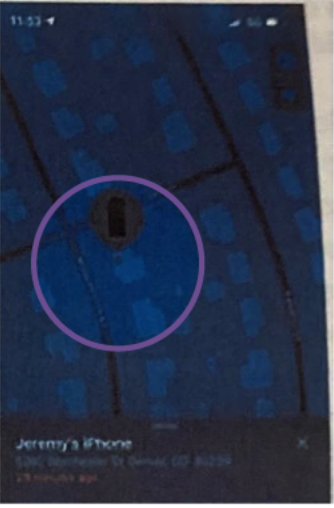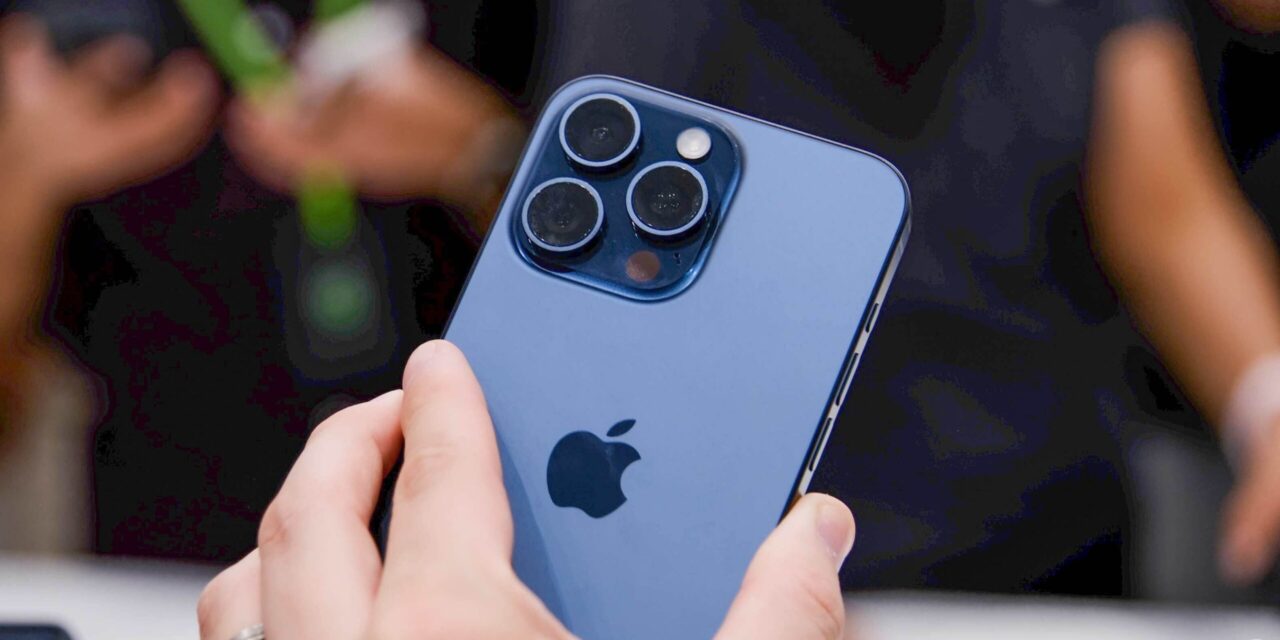A Colorado grandmother was subjected to a full-on SWAT raid of her home in January, all thanks to a detective who used a screenshot of the iPhone’s inaccurate “Find My” app to obtain a search warrant, a last week claims.
Retired service postal worker Ruby Johnson, 77, was home alone watching TV on Jan. 4 when she heard an air horn, followed by a voice amplified by a speaker ordering all the occupants of her Montbello-neighborhood home to walk out with their hands up, the lawsuit says. Dressed in a bathrobe and house slippers and with a bonnet on her head, she walked out the front door of her house and was met by an armored truck, marked vehicles, military-clad officers holding rifles, and even a K-9 dog.
“Is anyone else in the house?” one of the Denver Police Department officers asks Johnson, according to body camera footage 9News earlier this year.
“No, nobody else is in the house,” she tells him as she stands at the rear of the armored vehicle. She also assures the officers that she keeps her doors locked.
“That’s weird,” she tells them. “I mean, I see stuff like this in the movies, but I didn’t think it would ever happen to me.”
The officers were there to execute a warrant obtained by Det. Gary Staab, who had been investigating a truck that was stolen on Jan. 3 that contained $4,000 in cash, a tactical rifle, four handguns, a revolver, two drones, and most importantly to the detective’s investigation, an iPhone 11.
During a phone interview with the truck’s owner the morning after the truck was stolen, Staab was told that the iPhone’s location had last been pinged at Johnson’s home twice using Apple’s “Find My” app before disappearing. Though the owner was unable to find the phone or the stolen truck himself when he drove by, he told the detective that he suspected it could be parked in the garage of Johnson’s home.
Staab, using a screenshot of the phone’s alleged location and the victim’s claim that the Find My phone app had been accurate enough to locate his devices within five feet of its location in the past, was able to obtain a warrant for the raid from a Denver County Court judge.
The screenshot in question, however, shows that the stolen iPhone 11 wasn’t last seen on Johnson’s property, but somewhere near her home and at least six others.

Apple’s Find My” app is not always clear on the exact location of a users’ device. It instead offers an approximate location in these instances, as indicated by a radial circle. Apple even recommends in its that law enforcement should request device locations through the manufacturer.
“The warrant authorizing the illegal search of Ms. Johnson’s home [was] issued on Defendant Staab’s hastily prepared, bare-bones, misleading affidavit,” the lawsuit reads. “The affidavit presented absolutely no independent basis to corroborate a nexus to Ms. Johnson’s home.”
Johnson is placed in the back of a police car, according to the body camera footage, as cops thoroughly search her property, destroying some of her property, including a collectible doll and locks to her garage as well as standing on newly purchased furniture to search her attic. After hours of searching, police found nothing incriminating and finally let her go.
No one apologized or explained the exact reason for the raid, according to the lawsuit, and Johnson says she was left physically and emotionally traumatized by the officer’s actions. Immediately following the raid, she spent the week at her daughter’s house, who lived nearby, before spending the next three months with her son in Houston, Texas, the lawsuit says.
“The memories of her four decades there have been overtaken by the illegal police search that has redefined what her home means to her,” the lawsuit reads. “It is no longer a refuge but a reminder of her vulnerability, even when her doors are locked.”
Johnson, with the help of the Colorado American Civil Liberties Union Foundation of Colorado, is suing Det. Staab for an unspecified amount of damages, as well as the coverage of her attorney fees.
It’s unclear if Det. Staab has an attorney in the case yet. The Denver Police Department did not immediately respond to VICE News’ requests for comment.
Police raids, including those that lead to the killings of in 2020, to earlier this year, have been subject to criticism across the U.S., particularly in the last two years. The practice has been a repeated point of contention for critics who say these warrants have been used to in their own homes, oftentimes in the middle of the night.
Want the best of VICE News straight to your inbox? Sign up here.
This content was originally published here.






Recent Comments